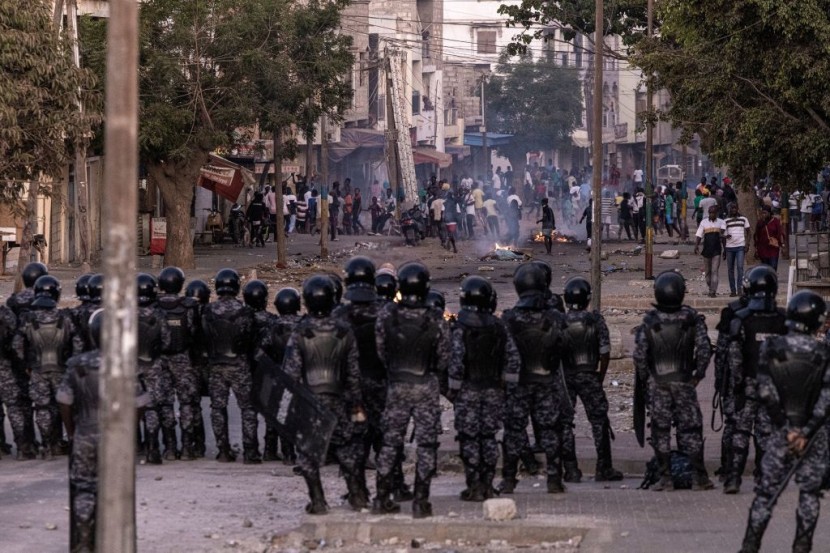
- Senegal's foreign ministry temporarily shut down its overseas consulates following attacks on its diplomatic missions
- The situation is a result of the deadly unrest that followed the arrest of opposition leader Ousman Sonko
- Riots have been raging for several days and have resulted in the deaths of at least 16 people and the injury of hundreds of others
Senegal is facing unprecedented deadly unrest following the arrest of opposition leader Ousmane Sonko, prompting widespread protests and forcing the region's foreign ministry to shut down overseas consulates temporarily.
The announcement noted that the affected consulates abroad would be temporarily closed following attacks in Paris, Bordeaux, Milan, and New York. Last week saw deadly demonstrations in the Senegalese capital of Dakar and several other cities.
Senegal's Unprecedented Deadly Unrest
Riots that have lasted for several days have resulted in at least 16 people dying and hundreds of others getting injured as supporters of the detained opposition leader clashed with law enforcement personnel, as per CNN.
The latest developments of the crisis have spread internationally, with the Senegalese diaspora leading demonstrations at overseas consulates. The foreign ministry said that the temporary shutdown of the diplomatic missions is a "precautionary measure" following a series of attacks.
Among the consulates overseas, the one located in Milan is considered to be the one that was hit the worst. The ministry said that "machines used to produce passports and national identity cards were destroyed."
On Monday, more than 40 protesters believed to be supporters of opposition leader Sonko gathered at the Senegalese consulate in Milan. Italian public broadcaster RAI reported that the consulate building was looted and that Consul General Mamadou Lamine Diouf was attacked.
Sonko, the 2024 presidential candidate and leader of the opposition PASTEF party, was sentenced in absentia on Thursday and given two years imprisonment. According to CNBC, he was charged for allegedly "corrupting the youth," and he was later acquitted on an accompanying rape charge.
Restricting Protesters' Right to Assembly
On top of the people who were killed and injured, law enforcement personnel also arrested roughly 500 individuals across various cities. Furthermore, authorities restricted internet and social media access and ordered roadblocks on key transport routes.
In a statement, deputy Africa director at Human Rights Watch, Carine Kaneza Nantulya, said that demonstrators' recent deaths and injuries mark a worrying situation for the 2024 presidential elections in Senegal. She argued that these are things that officials should thoroughly investigate.
Nantulya urged Senegal's leaders to end the repression against protesters and critics and guarantee freedom of assembly. In recent days, criticisms of restraints have been echoed by several parties.
These include the spokesperson for United Nations Secretary-General Antonio Guterres, the regional bloc of the Economic Community of West African States (ECOWAS), and the African Union Commission Chairman Moussa Faki Mahamat.
Senegal's government suspended mobile phone data on Sunday amid the deadly clashes between police and protesters. In a statement, the Ministry of Communication, telecommunications, and digital economy said that the decision was made due to the diffusion of "subversive messages in a context of public disorder in certain localities," said the Associated Press.








